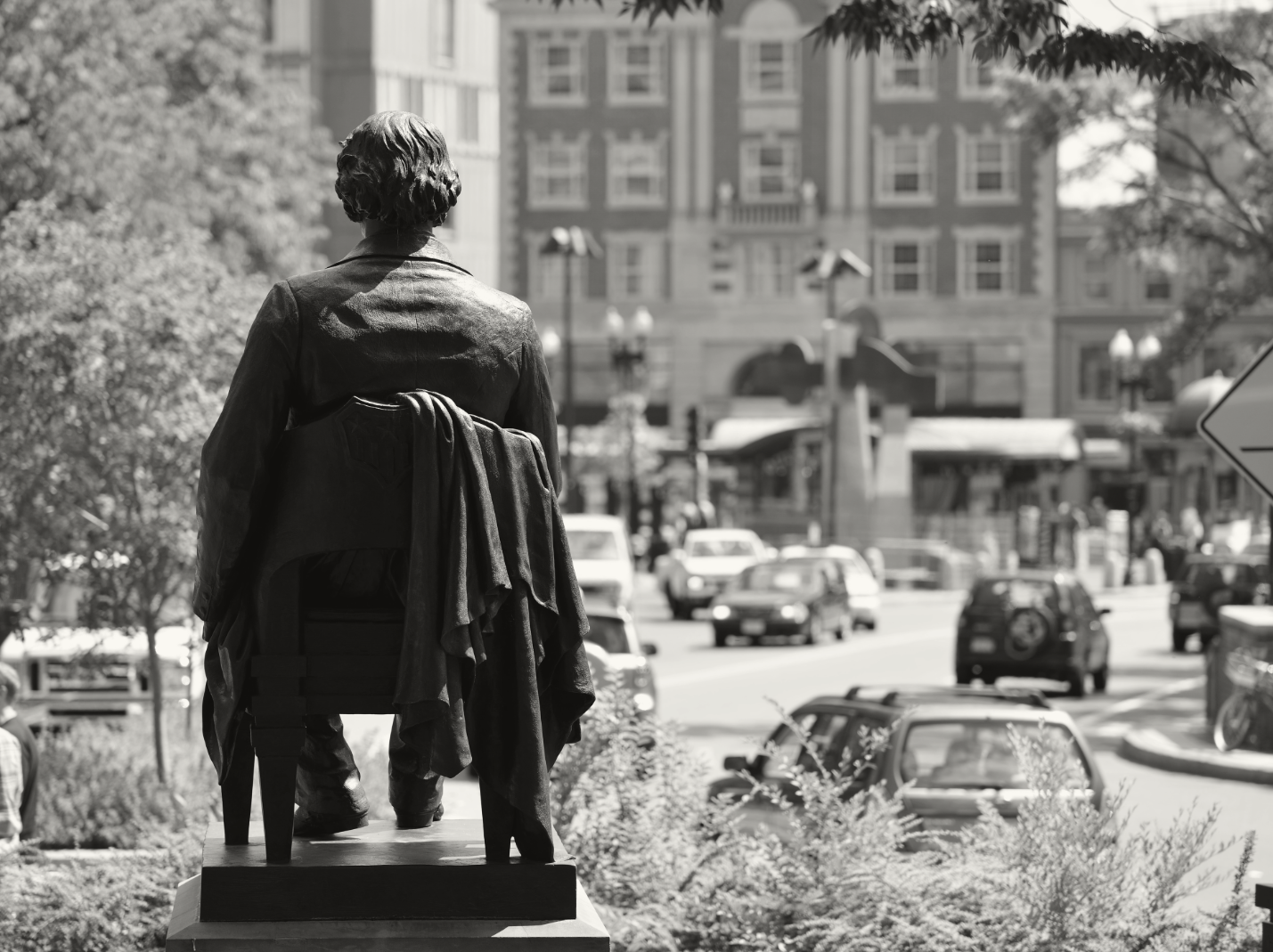
Harvard Dean Lawrence Bobo writes in the Harvard Crimson that faculty speech should have limits. There are, he says, responsibilities as well as rights associated with academic freedom:
As Harvard has moved to limit its opining on salient public issues, we must use our voices as faculty responsibly. Do we allow individual faculty with large external platforms to invite external interference and encourage student misconduct without consequence?
With unprecedented freedom comes great responsibility. These are matters the leadership of this university must address directly if we are to avert a troubling recurrence of the historic challenges that have unsettled life on our campus over the past nine months.
Ordinarily, I’m receptive to arguments that connect rights and responsibilities. Indeed, one of which our political discourse is most problematic is how we individualistically overemphasize the former at the latter’s expense. We urge everyone to know—and assert—their rights, provoking conflict and encouraging litigation, without similarly calling ourselves to a kind of “republican” responsibility, both to respect the rights of others and to pursue and promote our common good.
But Bobo’s argument gives me cause for pause.
At the bottom, he claims that professional—more precisely, institutional—responsibility—or loyalty—should be the ground and condition of using our rights. We should exercise our freedom not to threaten our university’s independence—or perhaps interests. In so arguing, he silently sweeps aside any possible conflict between our commitment to the institution and any other good or ideal, however respectable it might be.
Let me illustrate my point by beginning with the most obvious conflict.
Faculty members have commitments to both their institutions and their professions. Despite Bobo’s effort to conflate the two, it’s easy to imagine conflicts arising. For example, a university might decide to stop teaching a traditional liberal art like philosophy or might prioritize social justice at the expense of professional standards.
It also doesn’t require much imagination to envision a university betraying its vision—say, Veritas—in the name of some activist agenda. Should institutional loyalty—in effect, loyalty to those who currently hold positions of power or influence in the university—trump a commitment to either the long-held mission of the university or to the time-honored “idea of a university”—to borrow a phrase from Cardinal Newman? Bobo’s invocation of “civil disobedience” seems extraordinarily well-suited for such a challenge. Contrary to his view, the reason to undertake an appeal to a “higher law” is conscientiously to call into question the arguably corrupt practices of a fallen institution.
Further, might not one have to call on other constituencies—alumni, for example, or state legislators who are responsible for seeing taxpayer money is spent responsibly— to counter the activist agenda of those who currently control the institution?
I conclude by suggesting that the issue is even more complicated, with more complicated solutions, than I have thus far said.
Consider the loyalties that any faculty member might hold dear. I’ve mentioned institutional and professional loyalty. What about family, community, state or nation, humankind, faith, and truth? I am reluctant to say that every professor should resolve those potential conflicts for him or herself. At the end of that road is Hobbes’s state of nature, a war of all against all where every person claims to be a law unto him or herself. I’m also reluctant to say that contract or consent is the only device in our toolkit to manage those conflicts.
All I want to do here and now is to suggest that Bobo’s appeal to merely institutional loyalty—trust the internal process, he seems to demand—is unworthy of someone holding an endowed chair and position of leadership at a distinguished American university. We expect more of you, Dean Bobo.
Photo by jStock — Adobe Stock — Asset ID#: 193176338
“…Bobo’s appeal to merely institutional loyalty—trust the internal process, he seems to demand…
I could see trusting the internal process if it were functional and fair — it’s been neither for decades and the internal process is now starting to destroy the institution.
There is a much larger question here: “trusting the internal process” is why courts have traditionally refused to rule on academic matters and why suits filed by students are routinely tossed out — although courts are now starting to have problems with the Title IX Kangaroo Kort lynchings of young men.
Should courts routinely review academic employee decisions the way they routinely review other employer/employee decisions? Should students be considered “consumers” with the full array of consumer protection laws defending them against their universities? Should universities still be considered quasi-religious institutions exempt from judicial review the way a monastery is, or should courts have the authority to order IHEs to issue specific degrees to specific plaintiffs, possibly with a court-determined GPA….
And then as to Harvard, explicitly mentioned in the Massachusetts Constitution of 1780, theoretically the Massachusetts legislature has the authority to decree who will be running Harvard. Should it?
And at what point do we say that institutions that receive tax exemptions must make the taxpayers (who inherently pay more because of these exemptions) happy? And at what point do the Federal taxpayers start electing members of Congress who reflect their viewpoints regarding higher education and financing the same? (Remember that about half the country holds higher ed in open contempt…)
We live in interesting times…